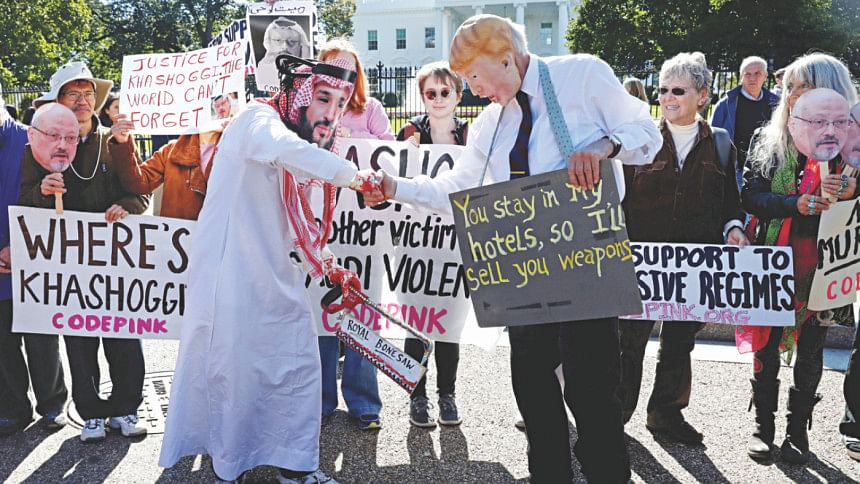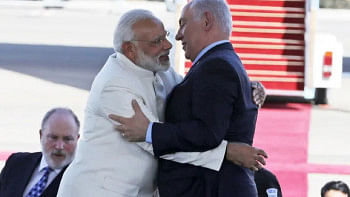From royal insider to critic

A complex man of contradictions, journalist Jamal Khashoggi went from being a Saudi royal family insider to an outspoken critic of the ultra-conservative kingdom's government, and was ultimately killed inside its consulate in Istanbul.
The Saudi journalist -- who disappeared after entering his country's consulate in Istanbul on October 2 to obtain marriage papers -- went into self-imposed exile in the United States in 2017 after falling out with Saudi's powerful Crown Prince Mohammed bin Salman.
Khashoggi came from a prominent Saudi family with Turkish origins.
His grandfather, Mohammed Khashoggi, was the personal doctor of Saudi Arabia's founder, King Abdul Aziz al-Saud. His uncle was the notorious arms dealer Adnan Khashoggi.
A friend of a young Osama bin Laden, a Muslim Brotherhood sympathiser, an aide to the Saudi royal family, a critic of the kingdom's regime and a liberal -- such conflicting descriptions were all ascribed to Khashoggi.
After graduating from Indiana State University in 1982, he began working for Saudi dailies, including the Saudi Gazette and Al-Sharq al-Awsat.
He was known to have been drawn to the Muslim Brotherhood's policies seeking to erase the remnants of Western colonialism from the Arab world.
Born in the Saudi holy city of Medina on October 13, 1958, Khashoggi spent his youth studying Islamic ideology and embraced liberal ideas.
But Saudi authorities came to see Khashoggi as too progressive and he was forced to resign as editor-in-chief of the Saudi daily Al-Watan in 2003 after serving just 54 days.
Over the years, he maintained ambiguous ties with Saudi authorities, having held advisory positions in Riyadh and Washington, including to Prince Turki al-Faisal, who ran Saudi Arabia's intelligence agency for more than 20 years. When Faisal was appointed ambassador to Washington in 2005, Khashoggi went with him.
In 2007, Khashoggi returned to Al-Watan newspaper, lasting almost three years before being fired for his progressive views.
He became close to Saudi billionaire Prince Al-Waleed bin Talal and together they launched in Manama a 24-hour news station, Al-Arab. However, Bahrain -- a staunch Saudi ally -- shut the station down in 2015, less than 24 hours after it broadcast an interview with an opposition official.
Khashoggi fled Saudi Arabia in September 2017, just months after Prince Mohammed was appointed heir to the region's most powerful throne.
Months later, Prince Al-Waleed and hundreds of officials and businessmen were arrested in November 2017 in what the Saudis called an anti-corruption campaign.
Since then Khashoggi has written a slew of essays in Washington Post and other sites criticizing the crown's prince's drive to reform the country.

 For all latest news, follow The Daily Star's Google News channel.
For all latest news, follow The Daily Star's Google News channel. 



Comments